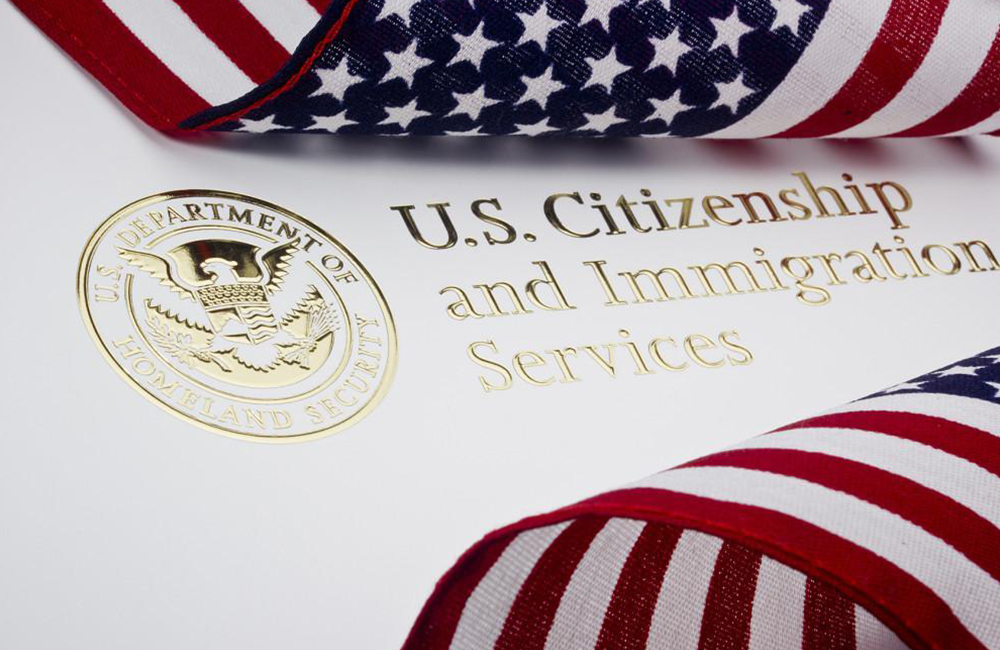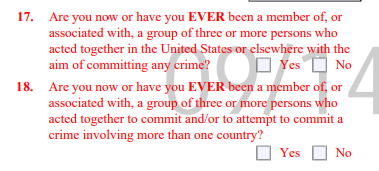
The process for an alien seeking lawful permanent resident status (a green card) depends on where the alien is physically located at the time of application. An alien outside of the United States who is the beneficiary of an approved immigrant petition and for whom an immigrant visa number is immediately available applies at a Department of State consulate abroad for the immigrant visa. This process is referred to as consular processing. Conversely, aliens already in the United States in some kind of nonimmigrant status apply for their green cards with the Department of Homeland Security’s U.S. Citizenship and Immigration Services (USCIS). This process is referred to as adjustment of status, and aliens apply using the Form I-485.
Unlike naturalization, adjustment of status is a discretionary immigration benefit. That means that approval requires a two-part analysis: (1) Does the alien meet all statutory and regulatory eligibility criteria; and (2) if yes, does the alien merit a favorable exercise of the adjudicator’s discretion? As the USCIS Policy Manual explains, “The favorable exercise of discretion and the approval of a discretionary adjustment of status application is a matter of administrative grace, which means that the application is worthy of favorable consideration.” The Policy Manual further explains that the applicant has the burden of proving he or she warrants a favorable exercise of discretion and must supply relevant and material information for that analysis.
Finally, the Policy Manual explains, “Given the significant privileges, rights, and responsibilities granted to LPRs, an officer must consider and weigh all relevant evidence in the record, taking into account the totality of the circumstances to determine whether or not an approval of an applicant’s adjustment of status application is in the best interest of the United States.” (Emphasis added.)
The key phrase here is “in the record”, meaning the information extracted through the questions on the Form I-485. During the Trump administration, USCIS sought to revise the Form I-485 to ensure that applicants provide sufficient, relevant information for the adjudicator’s discretionary analysis. In “Part 8. General Eligibility and Inadmissibility Grounds”, USCIS sought to add the following two questions related to gang membership:
 |
In compliance with the Administrative Procedure Act and the Paperwork Reduction Act, the Form I-485 revision went through a 60-day comment period followed by a subsequent 30-day comment period. Unfortunately, the Office of Information and Regulatory Affairs (OIRA) within the Office of Management and Budget, which controls executive branch information collections, failed to approve the revised version of the form before President Biden’s inauguration.
A USCIS source tells me that the agency’s political leadership intends to scrap these questions before the Form I-485 is resubmitted to OIRA for approval. This is remarkable for several reasons. First, the Biden political appointees inaccurately call these “politically motivated questions by previous leadership” despite career staff involved in the 2020 form revision project pointing out that the Department of Justice had specifically requested that such information be included in the form. Undeterred, the USCIS political team is reportedly pushing ahead despite being wrong about the origin of these questions. Second, scrapping the gang-related questions deprives adjudicators of a full record to make adjustment of status decisions. The Biden administration appears unconcerned that the absence of gang information in the I-485 will allow bad actors to obtain green cards that would have been denied if only the adjudicator had the information.
Perhaps this is the latest example of President Biden capitulating to the mass immigration advocates. Just recently, 35 liberal House Democrats and a number of advocacy groups separately wrote to DHS Secretary Mayorkas urging him to stop deporting alien gang members. President Biden and his supporters often say they offer a more “compassionate” immigration policy compared to former President Trump’s. The biggest beneficiaries of that “compassion” are apparently the most violent and dangerous aliens in the country.
Based on the timeline of the form development my source provided, USCIS plans to publish a new 60-day comment period notice on October 4, 2021; publish the 30-day comment period notice on January 10, 2022; and submit to OIRA for approval on February 15, 2022.
